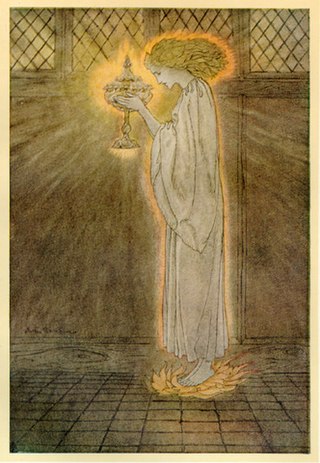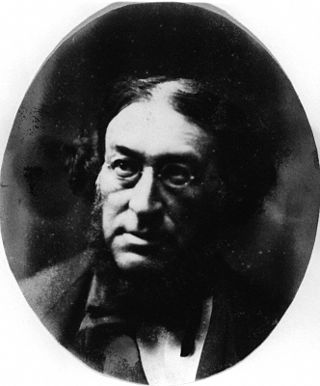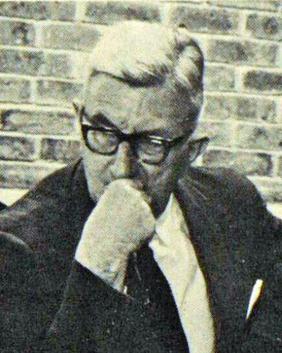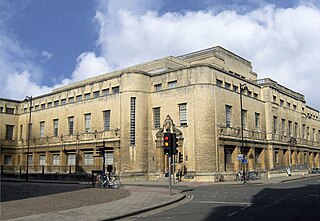
Thomas Hearne or Hearn was an English diarist and prolific antiquary, particularly remembered for his published editions of many medieval English chronicles and other important historical texts.

Sir Antonio Genesio Maria Panizzi, better known as Anthony Panizzi, was a naturalised British citizen of Italian birth, and an Italian patriot. He was a librarian, becoming the Principal Librarian of the British Museum from 1856 to 1866.
Wallace Wilfred Swinburne Breem was a British librarian and author.

Sir William Henry Flower was an English surgeon, museum curator and comparative anatomist, who became a leading authority on mammals and especially on the primate brain. He supported Thomas Henry Huxley in an important controversy with Richard Owen about the human brain and eventually succeeded Owen as Director of the Natural History Museum in London.

Richard Garnett C.B. was a scholar, librarian, biographer and poet. He was keeper of printed books at British Museum from 1890-1899.

Sir Charles Thomas Newton was a British archaeologist. He was made KCB in 1887.

Henry Bolingbroke Woodward was an English geologist and paleontologist known for his research on fossil crustaceans and other arthropods.

Sir Ernest Alfred Thompson Wallis Budge was an English Egyptologist, Orientalist, and philologist who worked for the British Museum and published numerous works on the ancient Near East. He made numerous trips to Egypt and the Sudan on behalf of the British Museum to buy antiquities, and helped it build its collection of cuneiform tablets, manuscripts, and papyri. He published many books on Egyptology, helping to bring the findings to larger audiences. In 1920, he was knighted for his service to Egyptology and the British Museum.

Sir Augustus Wollaston Franks was a British antiquarian and museum administrator. Franks was described by Marjorie Caygill, historian of the British Museum, as "arguably the most important collector in the history of the British Museum, and one of the greatest collectors of his age."
The office of Royal Librarian, in the Royal Collection Department of the Royal Household of the Sovereign of the United Kingdom, is responsible for the care and maintenance of the books and manuscripts in the Royal Library, a collection spread across all the palaces, occupied and unoccupied. In addition to their role overseeing the librarians in the Royal Library, the Librarian is also Deputy Keeper of the Royal Archives and is responsible for the management of the Royal Archives and its collections.

Alfred William Pollard, FBA was an English bibliographer, widely credited for bringing a higher level of scholarly rigor to the study of Shakespearean texts.

Colonel Sir Anthony Coningham Sterling KCB was a British Army officer and historian, author of The Highland Brigade in the Crimea.

Edward Christopher Williams was the first African-American professionally trained librarian in the United States. His sudden death in 1929 ended his career the year he was expected to receive the first Ph.D. in librarianship. Williams was born on February 11, 1871, in Cleveland, Ohio, to an African-American father and an Irish mother. Upon his graduation with distinction from Adelbert College of Western Reserve University in 1892, he was appointed Assistant Librarian of Hatch Library at WRU. Two years later, he was promoted to librarian of Hatch Library until 1909, when he resigned to assume the responsibility of the Principal of M Street High School in Washington, D.C. He continued his career as University Librarian of Howard University until his death on December 24, 1929. Williams was rediscovered as a Harlem Renaissance author with the 2004 publication of his novel When Washington Was in Vogue, considered among the earliest epistolary novels by an African American.
Edward Edwards (1812–1886) was a British librarian, library historian, and biographer. He was an important figure in the establishment of free libraries in the United Kingdom. He died and is buried in Niton on the Isle of Wight.

Sir Frank Chalton Francis was an English academic librarian and curator. Almost all his working life was at the British Museum, first as an Assistant Keeper in the Department of Printed Books, and later as Secretary of the museum, Keeper of Printed Books and, from 1959 to 1968, Director and Principal Librarian of the museum.
Sir George Francis Hill, KCB, FBA was the director and principal librarian of the British Museum (1931–1936). He was a specialist in Renaissance medals.

The British Museum Library: A Short History and Survey is a book by Arundell Esdaile published by George Allen & Unwin, London, in 1946. It was reprinted in 1979 by Greenwood Press, Westport, Conn. from the 1948 ed. published by G. Allen & Unwin, London, which was issued as no. 9 of the Library Association series of library manuals. Esdaile's book serves as a historical survey of the British Museum Library when the museum and library departments were housed in the same building. The book traces the entire history of the institution, from 1753 to 1945.

Richard Julian Roberts FSA was a British librarian, bibliographer, and scholar.

Richard Thomson (1794–1865) was an English librarian and antiquary.















